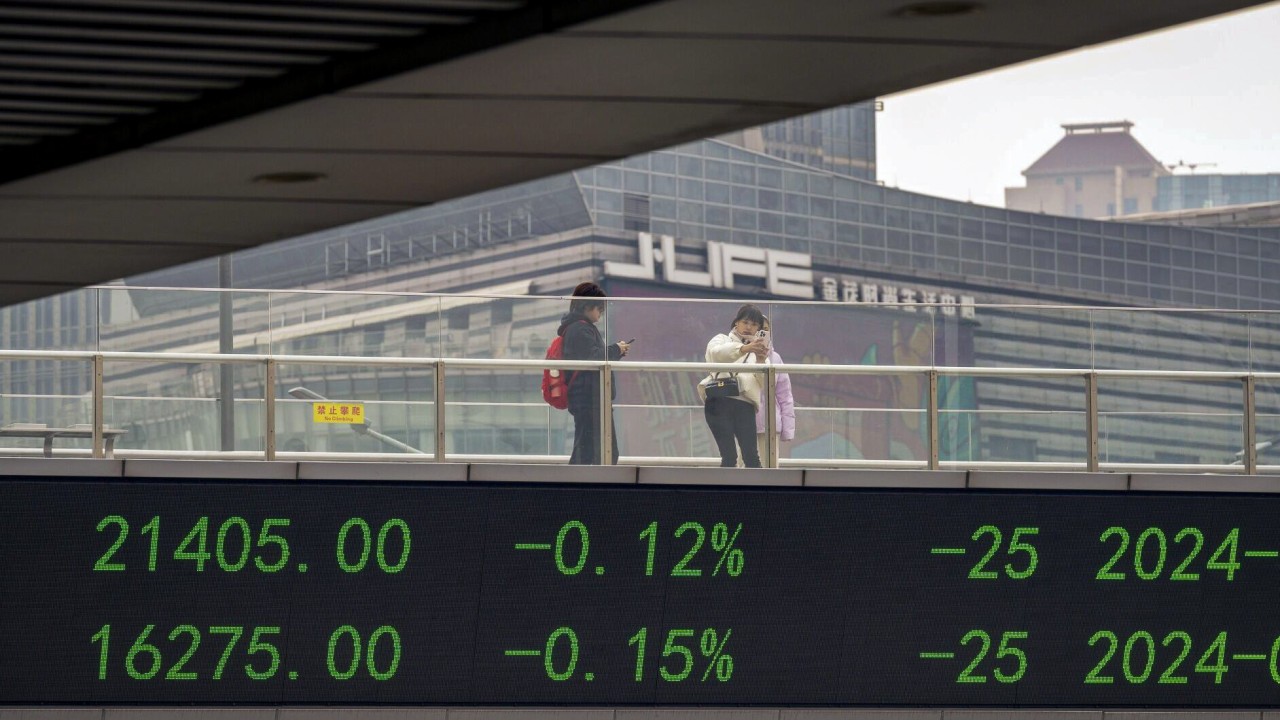
Investors in China’s US$8.3 trillion onshore stock market have trimmed their bearish bets to the lowest in more than three years amid curbs imposed by the regulator on securities lending and short selling activities.
The outstanding value of shorted yuan-traded stocks fell to 51.7 billion yuan (US$7.2 billion) on Wednesday, from 93.6 billion yuan six months ago, approaching the 51.6 billion yuan level not seen since July 2020, according to Bloomberg data.
A reduction in the volume of shorted stocks will come as a relief for China’s stock market, one of the world’s worst performers this year. Stocks available to short sellers have declined considerably since the China Securities Regulatory Commission (CSRC) issued the rules.
The restrictions will cap the volume of stocks that can be shorted and probably subdue short selling to some extent in the future, according to Fei Xiaoping, an analyst at Dongguan Securities.
“Through these means, the market can hopefully avoid turbulence, and sentiment will get a boost by curbing high-frequency and leveraged trading,” Fei said.
China appoints new securities chief to head off stock market slump
China appoints new securities chief to head off stock market slump
The regulatory measures will probably ease sell-offs in biopharmaceuticals, electronics, power equipment, information technology and non-banking financials – sectors with the highest proportion of shorted stocks, according to Dongguan Securities.
The unrelenting decline in Chinese stocks, which have lost about US$3 trillion in market capitalisation over the past year, has drawn the attention of the top leaders.
Premier Li Qiang called for more forceful measures to end the rout at a cabinet meeting last month, as Beijing realised the urgency to stop the market carnage that could lead to a backlash from the public already discontented with slumping housing prices and rising youth unemployment.
China market regulator’s rescue act seeks to guard financial and social stability
China market regulator’s rescue act seeks to guard financial and social stability
The constraints on short selling are part of an ongoing drive by regulators to steady the market, which includes direct state buying, clamping down on manipulation and insider trading and pushing mergers and acquisitions between listed companies to boost investment values.
An earlier market-rescue package in August, ranging from a cut in the stamp duty to restrictions on fundraising activities, has done little to soothe investors who are focused on the economic fundamentals. China’s manufacturing industry contracted for a fourth straight month in January and the deflationary pressure intensified, with consumer prices falling at the fastest pace since 2009.
China is not alone in restricting short selling. South Korea banned investors from shorting stocks in some key benchmarks in November, which was viewed as a move to protect new individual investors who had flocked to the market. The mandate lifted the Kospi index to a 19-month high in January.
China approved margin trading and short selling in 2012 as part of a capital market reform to diversify investment tools for investors. During the 2015 meltdown that saw US$5 trillion of value wiped out, short selling was blamed for fuelling the sell-offs, prompting the securities regulator to impose curbs on shorting stocks and index-futures contracts.
The falling value of shorted stocks will mostly erode the revenues of Citic Securities and Huatai Securities, the brokerages with the highest proportion of short selling exposure in the industry, according to Shenwan Hongyuan Group. Citic Securities had lent stocks valued at 23.6 billion yuan as of June end, while at Huatai it stood at 17.3 billion yuan.
“The tighter restrictions on short selling reflect the regulator’s intention to protect the interests of small investors and ensure fairness in the market,” said Luo Zuanhui, an analyst at Shenwan.

